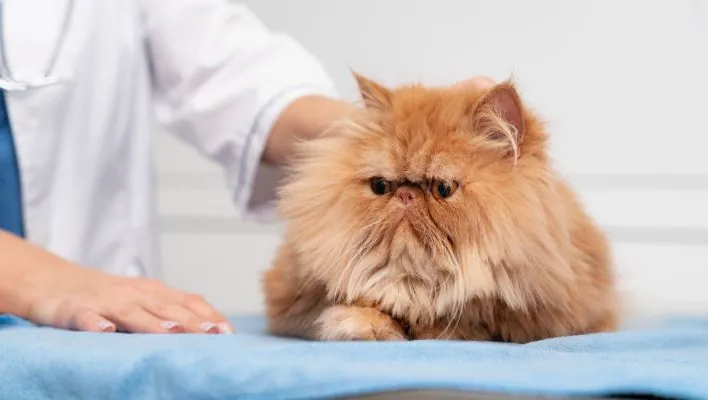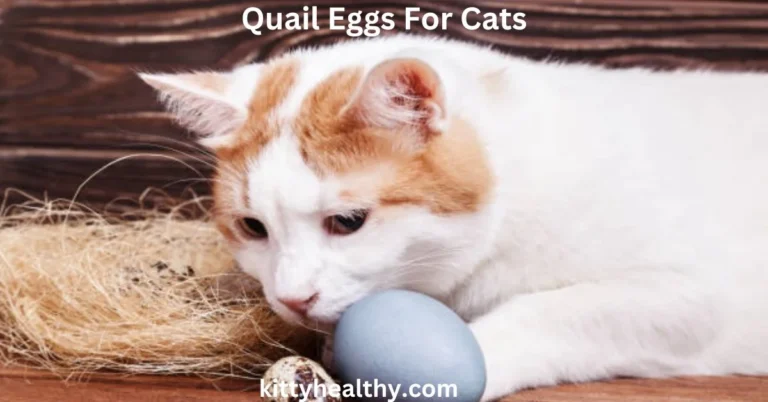Chicken liver for cats? Benefits And Potential Risks
Chicken liver for cats is okay or even considered good for them, if given in moderation and as an occasional treat. Liver is absolutely essential to a raw diet.You can’t do a raw diet without liver. It contains a lot of nutrients which is good for a feline’s overall health but don’t forget moderation is key.
Too much liver can cause the risk of developing vitamin A toxicity in cats.Similarly vitamin D, found in the liver is beneficial for cat’s health but if it’s taken in high amounts it can be dangerous and can lead to serious health condition like kidney failure.
Nutrients in chicken liver
Chicken liver is not only a pleasant treat for cats but it is also a great source of nutrients like proteins, vitamin A, vitamins B, and iron.
Protein:It is found in high amounts in chicken liver that is highly used as an energy in cats. Protein also supports growth, muscle maintenance, boosts the immune system and promotes healthy skin and shiny fur. Some cat owners used chicken liver in the cat”s dry food in order to minimize the carbohydrates level in it.
Vitamin A: Liver is a power bank of vitamin A as it stores all vitamins from the body. It plays a vital role in improving a cat’s vision and immune system. Similarly it also helps in ensuring skin health and reproductive health.
Vitamin B: Liver is also loaded with this B12, which is very important for cats’ healthy nervous system and energy production. It also plays a role in promoting digestion, cat’s mental health and cognitive function.
Iron: This mineral is responsible for carrying oxygen from the lungs to the whole body and makes the body active and play in this way.It is also crucial for the growth of a healthy nervous system and immune system.

Things to consider while feeding chicken liver to cats
- Well-cooked
- Moderation is key
Well-cooked
When chicken liver is cooked well it retains the important nutrients like vitamin A, vitamin B, taurine and iron in it. However, when chicken liver is over cooked it can lead to loss of some crucial nutrients and enzymes.
Raw chicken liver consists of harmful parasites and bacteria that is not good for the feline’s health and can make your cat sick. Do not add herbs and seasonings to the liver while cooking as it can cause discomfort in our feline friend.
Similarly, Cooking chicken liver can help to get rid of harmful bacteria like salmonella and E. coli, present in raw chicken liver which can be dangerous for both cats and its owner.
Cooked liver is suitable for cats to digest easily, especially those with weak stomachs. Proper and well-cooked liver for cats can reduce lower the risk of foodborne illnesses
Moderation is key
Chicken liver can be a healthy treat for cats if given in moderation.Feeding one chicken liver daily for cats is generally not recommended. Keep chicken liver less than 10% in a daily cat’s diet. Consumption of too much liver can cause vitamin A toxicity in cats.
Potential Risks of chicken liver for cats
- Vitamin A toxicity
- Hepatic lipidosis
Vitamin A toxicity
Chicken liver contains a large amount of vitamin A but it can cause vitamins A toxicity given in excessive amounts. This disease progresses slowly and leads to irreparable damage with the passage of time. Symptoms of this illness include lethargy, bone pain, and even abnormal growth of bones.
Hepatic lipidosis
This disease is also known as “fatty liver syndrome” and occurs when fats accumulate in the liver cells. One of the reasons for this disease can be fats in chicken liver if it is taken in excessive amounts which could contribute to obesity and as a result cats become victims of hepatic lipidosis.
Symptoms include vomiting, diarrhea, lethargy and jaundice (yellowing of the skin or whites of the eyes). This can be fatal if not treated properly.

Raw vs cooked chicken liver for cats?
Here’s a table comparing raw and cooked chicken liver for cats, focusing on key aspects:
Here’s a table comparing raw vs cooked chicken liver for cats, focusing on key aspects:
| Aspect | Raw Chicken Liver | Cooked Chicken Liver |
|---|---|---|
| Nutritional Value | High in vitamin A, B vitamins, taurine, and iron. | Retains most nutrients when cooked properly; overcooking can reduce nutritional value. |
| Safety | Risk of parasites and bacteria, such as salmonella, which can be harmful to cats. | Cooking kills most harmful bacteria and parasites, making it safer for consumption. |
| Preparation | Requires strict hygiene practices to minimize bacterial contamination. | Avoid adding herbs, seasonings, or oils that can be harmful to cats. |
| Risk of Nutrient Loss | No risk of nutrient loss due to cooking processes. | Risk of losing some crucial nutrients if overcooked. |
| Palatability | Some cats may prefer the taste and texture of raw liver. | Cooking changes texture and taste, which may be more acceptable to some cats. |
| Digestibility | Raw foods can be more difficult for some cats to digest due to the presence of bacteria and parasites. | Cooking can make the liver easier to digest by breaking down tough proteins. |
| Recommended Frequency | Should be fed sparingly due to the risk of vitamin A toxicity and bacterial contamination. | Can be included in the diet in moderation, ensuring a balanced intake of nutrients. |
Can I feed other animals liver to my cat?
Chicken liver is a popular treat for cats, feeding it to the cat can be a nutritious addition in the cat’s diet. Similarly, lamb, beef and pork liver are also considerable for cats other than chicken liver.
Liver is a powerhouse of vitamins, fatty acids and irons, which is good for a cat’s overall health, like vision and immune system. However liver must be fun addition for cats irrespective of type, remember moderation is very important for each type of liver.
Read more:
FAQ’s
Yes, chicken liver is very crucial in moderation for kitten’s growth and immune system. Chicken liver consists of taurine, necessary for clear vision and developing the immune system in young kittens. However, feed it with care to the little growing felines to avoid any discomfort in them. Cook it well so it is easy for kittens to digest and kill bacteria harmful for little felines.
What kind of liver is good for cats?
Liver is always considered good for cats, but choose fresh liver and make sure to feed a safe meal to your cats and prefer chicken liver over other types of liver.
Beef liver is as nutritious as chicken liver. It consists of taurine and vitamins. Beef liver is high in fat, so it is recommended in low quantities.
Bottom line
Whether raw or cooked, it’s important to handle chicken liver properly to avoid the risks of bacterial contamination and ensure it retains its nutritional value. However, overfeeding the liver can lead to vitamin A toxicity and other health issues, underscoring the importance of moderation. Cooking chicken liver is generally safer, as it eliminates harmful bacteria and parasites.






